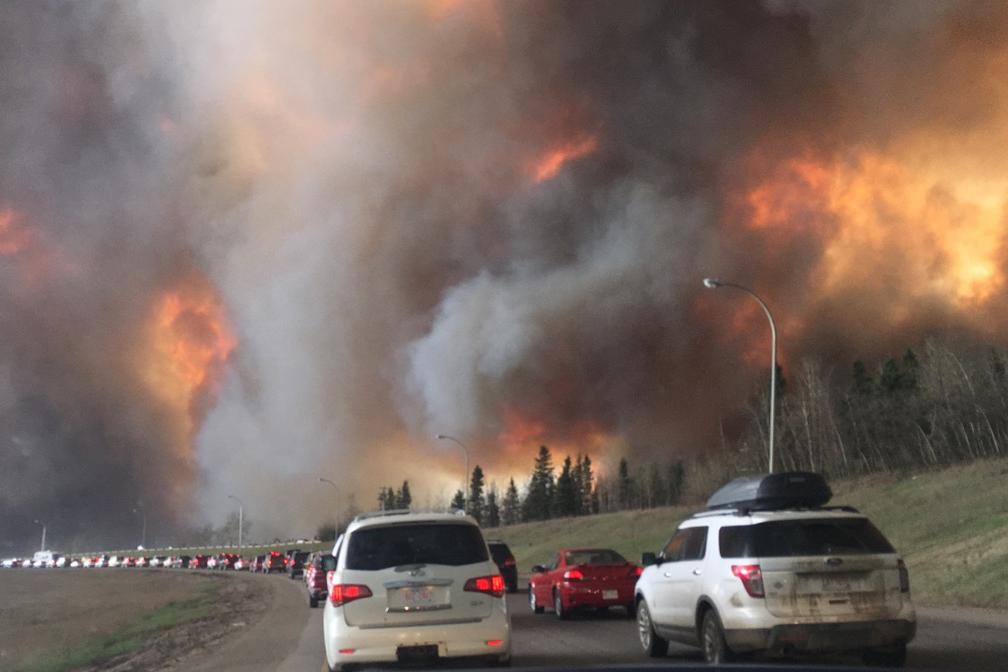A recent World Health Organization resolution sought to encourage breastfeeding as the healthy and safe choice for infants around the world but especially in poorer, developing countries where clean water and food security may be a concern.
However, new research from the University of Georgia says that despite a country’s wealth, they may struggle to implement safe infant feeding in disasters.
“First responders and shelter personnel need to think of infant feeding as a food security issue,” said Sarah DeYoung, an assistant professor of health policy and management in UGA’s College of Public Health and lead investigator. But at the moment, she says, “infant feeding is an afterthought in disaster sheltering and evacuation.”
In the first study to measure the impact of a large-scale wildfire evacuation on infant feeding, DeYoung and her team surveyed the experiences of mothers and caregivers who fled the wildfires that swept through Fort McMurray in Alberta, Canada, in 2016.
Over 88,000 people were forced to leave the remote town and shelter in cities hours away, and most Fort McMurray residents didn’t return home for almost six weeks. The strain of the evacuation was amplified for mothers and caregivers.
Many of those surveyed said they experienced stress related to infant feeding and food security. Some respondents indicated that they had concerns about breastfeeding or difficulty finding space to clean bottles and feeding supplies.
It’s crucial to incorporate safe infant feeding protocols in emergency response plans, said DeYoung especially for babies who are younger than six months old.
“That’s a critical time frame,” she said. “Babies should be breastfed until they are at least six months old, so if there is a four or five-month-old in an evacuation, early weaning can still have health implications.”
Yet, the number of women exclusively breastfeeding dropped from 64 percent before the fires to 36 percent. Some mothers said they struggled to breastfeed or pump milk, believing that their milk supply diminished due to the stress of the evacuation.
Many of the caregivers also shared that because of the evacuation, being physically far away from their healthcare or lactation specialists made it difficult to access support regarding feeding concerns.
DeYoung says it’s important to communicate with mothers and caregivers that breastfeeding is still possible during emergencies as it remains the safest form of infant feeding post-disaster.
The WHO cautions against mass formula distribution in emergencies and instead recommends a targeted approach. But the research team gathered data which suggests that shelter personnel handed out formula to without assessment or support.
Almost one third of caregivers reported receiving formula without any preparation or storage instruction, which can lead to gastrointestinal distress and dehydration if the formula is improperly mixed. In fact, one of the largest shelters for Fort McMurray evacuees did experience an outbreak of diarrhea, prompting the sheltering staff to bring in infant feeding specialists.
DeYoung says these findings offer some immediate takeaways for emergency planners. Above all, lactation and infant feeding resources need to be on hand to provide support for families with infants, and breastfeeding caregivers should have space in sheltering facilities for infant feeding.
“Mothers and caregivers are experts in what their children need,” said DeYoung. “It should not be viewed as a luxury to make sure the infant has food security during and after the disaster”.
The study, “The Effect of Mass Evacuation on Infant Feeding: The Case of the 2016 Fort McMurray Wildfire” was published in Maternal and Child Health Journal. It is available here.
Co-authors include Jodine Chase with Royal Roads University and SafelyFed Canada, Michelle Pensa Branco with the University of Waterloo and SafelyFed Canada, and Benjamin Park formerly with the University of Georgia, now a medical student at Vanderbilt University School of Medicine.
[Photo Credit: Image of Fort McMurray wildfires courtesy of DarrenRD at WikiCommons.]
– Lauren Baggett
Posted on July 3o, 2018.
The new release is available on UGA Today and the Aug. 3, 2018 issue of the ASPPH Friday Letter. Additional coverage via the The Star Edmonton and on Mix 103.7 FM.
Related stories:
- Mothers need better safe infant feeding support post-disaster, study finds
- Infant Feeding in Emergencies: How to Support Families During Evacuation and Sheltering







